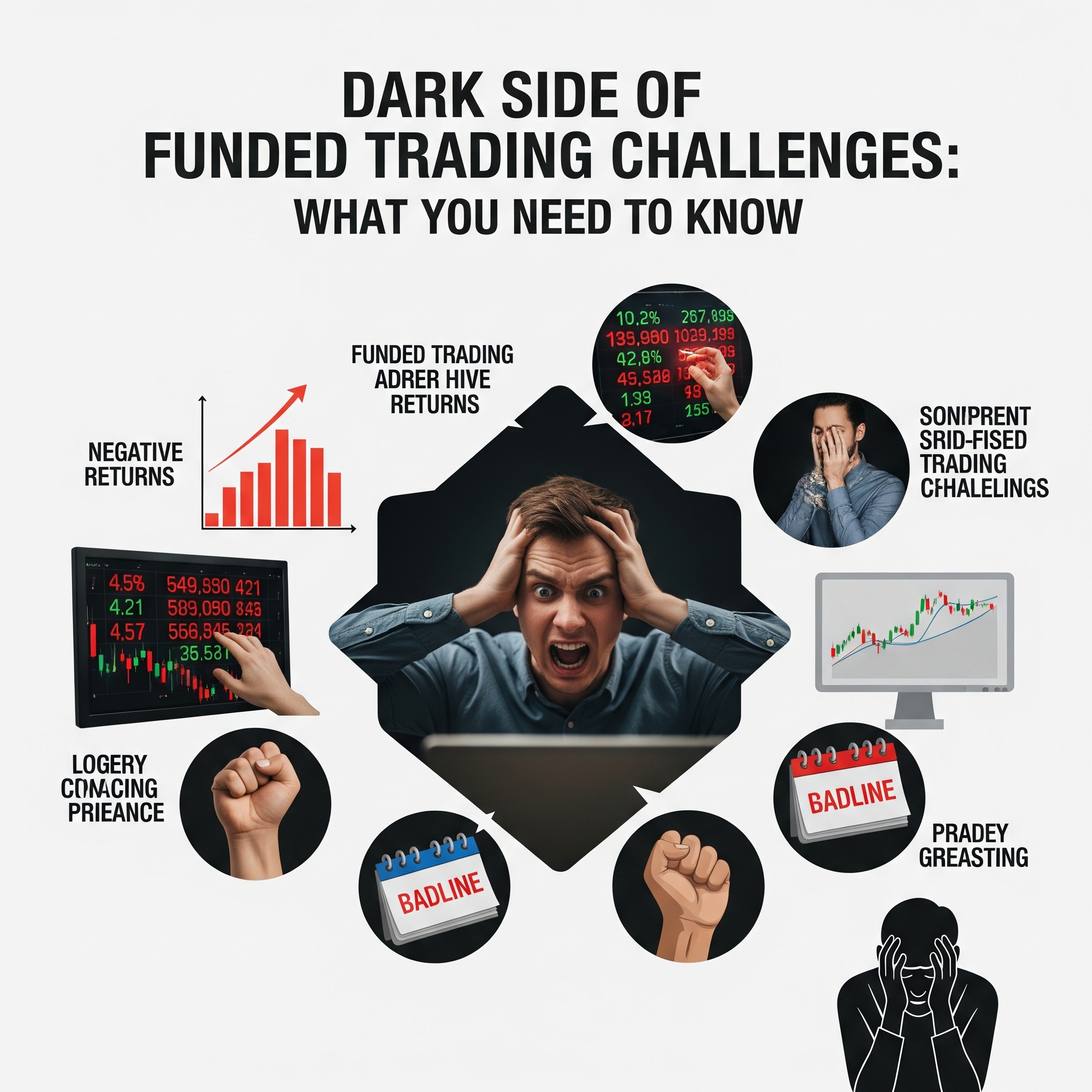Funded trading sounds like the dream, right? Trade with someone else’s money, keep a big chunk of the profits, and finally leave your 9-to-5. That’s the pitch behind funded trading challenges offered by prop firms like FTMO, MyForexFunds (RIP), TopStep, and others.
But here’s the thing no one tells you upfront: these challenges come with a dark side — one that can cost you more than just money.
Let’s peel back the curtain and talk honestly about what’s going on behind the scenes.
What Exactly Is a Funded Trading Challenge?
A funded trading challenge is basically an evaluation process. You pay a fee, follow a strict set of rules, and try to hit a profit target within a limited time. If you pass, you “get funded” — meaning you trade a much larger virtual account, and the firm gives you a cut of the profits (usually 70% to 90%).
Sounds fair on paper. But the devil is in the details.
1. The Pressure Is Real — And Dangerous
Most challenges require you to hit a profit target (say, 10%) in 30 days or less, all while keeping your risk ultra-low. That combo puts massive pressure on traders to over-leverage, force trades, or abandon their strategies entirely.
Instead of promoting discipline, these challenges can:
- Encourage gambling behavior
- Make you chase losses
- Wreck your trading psychology
You’re not trading like a pro; you’re trading like someone trying to survive a minefield.
2. The Profit Split Illusion
You’ll see banners everywhere: “Earn 90% profit share!”
But guess what?
You only get that cut if you’re profitable — and most traders never make it past the evaluation stage. Even if you do, the payout process can be:
- Slow
- Unclear
- Sometimes blocked by mysterious rule violations
Plus, some firms don’t use real capital — they simulate trades on a demo environment and only pay out if they believe you’re “valuable” enough. Shady? A little.
3. The Fee Trap: Pay to Play (Again and Again)
Here’s the business model:
You fail → You pay to try again → You fail → You pay again…
Some traders are stuck in this endless cycle, spending hundreds (even thousands) on evaluations they never pass. And let’s be real: some firms make more from challenge fees than from successful traders.
Look out for:
- Ridiculously strict rules
- “Free retry” offers that sound nice but are nearly impossible to qualify for
- Vague reasons for disqualification after you pass
4. Scams Still Exist — Even in 2025
Just because a firm has a slick website doesn’t mean they’re legit.
Need proof? In 2023, MyForexFunds — one of the biggest names in the game — got shut down by regulators. Traders were left without payouts, accounts, or answers.
Signs of shady behavior:
- No real regulation or business registration info
- No verified payout stats
- Frequent rule changes with zero warning
- Social media full of complaints or refund requests
Always do your research. Look up Reddit threads, Trustpilot reviews, and trader forums before signing up.
5. Mental Burnout Is a Real Risk
You know what’s worse than losing money? Losing confidence.
The constant stress of trying to pass challenges, stick to rules, and prove yourself can cause serious burnout. It leads to:
- Second-guessing every trade
- Loss of discipline
- Giving up on trading altogether
Even skilled traders can spiral when the pressure mounts.
6. Not All Prop Firms Are the Enemy
Let’s be fair — there are good prop firms out there. Some genuinely want you to succeed. They’re transparent, pay out reliably, and don’t set you up to fail.
Before signing up with any firm, ask yourself:
- Do they disclose success and failure rates?
- Are their rules trader-friendly or trap-laden?
- Is support helpful or sketchy?
- Are they actually regulated?
It’s your job to separate the real opportunities from the marketing hype.
Final Thoughts: Know What You’re Getting Into
Funded trading challenges can open doors, but they’re not a shortcut to success. The truth is, most traders:
- Fail the evaluation
- Get stuck in a cycle of fees
- Burn out chasing unrealistic goals
That doesn’t mean you shouldn’t try — but go in with realistic expectations, strong risk management, and a lot of self-awareness.
Key Tips:
- Practice your strategy in demo first
- Never trade money you can’t afford to lose (even if it’s “their capital”)
- Focus on consistency, not just profit
- Read the fine print. Twice.
Ready to Take a Challenge?
If you still feel confident and prepared, go for it — but choose your firm wisely. And remember: it’s better to be a slow, consistent trader than a fast, frustrated one.
Want more real talk on trading?
Subscribe to the blog, or drop a comment below — we talk trading wins and losses here, no sugarcoating.


Leave a Reply